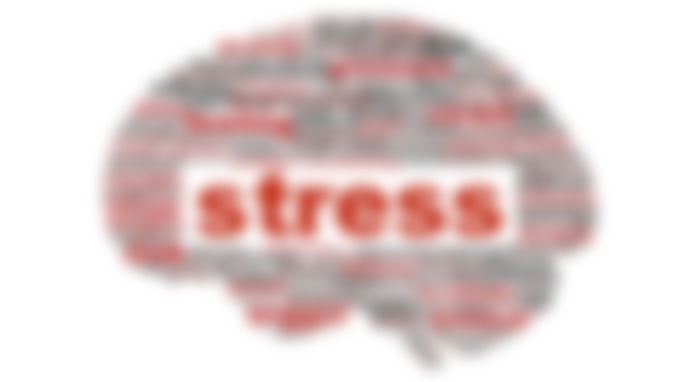When was the last time you struggled to learn something new? If I ask, I guess the majority will point to recent times. One of the obvious consequences of this period, which can be called the "pandemic effect" in our life flows and still continues even though its intensity has changed, was our tendency to learn new things. I know this from time to time, from the comments on my heart rate checks on my Instagram account, from the participants in the trainings, and from those who continue to work actively in my own environment.

There may be different triggers underlying the fact that large numbers of people adopt this behavior in the same sequence. The most common reason I come across is the desire to fill the time gained from the activities that were reduced during this period. An opportunity to address a topic of interest that is always delayed for some. This is a compulsory activity for those whose jobs are getting shorter, ending and preparing to work in a new field. Another reason may be that it is one of the most effective methods of dealing with stress. This last one constitutes the focus of this article as well.

Work stress is an important issue that has been increasingly emphasized in recent years and affects both the productivity of the institutions, the health and happiness of the employees, in short, the well-being. On the days under the influence of the pandemic, managing work stress has become more on our agenda depending on the culture of the institution we work with, external influences such as economy and politics, or the health conditions of ourselves and our relatives.
Those who follow my articles may know that I put a lot of emphasis on learning, and the research aspect of the work says that the last of the above strategies is most effective. There are several reasons why learning is the most effective among these strategies, each of which can be a separate subject of writing: There is no limit to our capacity to learn, that is, it is not a resource we consume. Another is that besides the benefit of cutting us off with the stress it provides at that moment, it also creates future-oriented results and gives us new tools to use when necessary. But of course they have preconditions such as desire and curiosity. Also, seeing learning as a "job" or a "task" will not provide the intended benefit - as here, to manage work stress well.
What do we mean by learning?
If we are going to use learning activity as a tool to overcome work stress, learning something about the subject that causes stress or learning about other unrelated subjects can be useful. The reason they both work is that the mind that goes into learning mode creates a buffer zone between us and the stress factor, separating us from the negative impact.

It is necessary for the act of learning to include a dose of difficulty, not too much or too little, to develop skills and will provide our brain with the focus it needs, focusing our attention on the problem and the solution. (For the enthusiast: The most famous theory of performance with the proper dose of strain is Csikszentmihalyi's Flow Theory.) If you think you're experiencing great stress, it would be wise to be careful not to exaggerate this challenge. If you are temperamentally prone to goals that are difficult to achieve or will take a long time, and if your expectations from yourself are generally higher than those of others, it will be instructive to set a different strategy this time. For example, trying to make lots of discoveries in a seemingly small target path by picking a topic that can be easily tackled or enjoyable to deal with.
Reflecting or reflecting is also an effective learning technique. Describing, making sense of what you have experienced in your chosen learning topic, thinking about what you have learned and what you need to learn more, and even better, writing will open new doors. You can also use the questions in a subtitle for this method of thinking. For this, it will be helpful to have plenty of observation. Making observations both on yourself and on other people creates opportunities for new discoveries. As always, it is critical to be non-judgmental in doing this, remembering that the goal is discovery. As he makes discoveries, he will provide plenty of material for making decisions, assigning himself homework, making experiments and evaluating each experiment, and reflection.

Another important point is to be able to observe our progress, regardless of the topic addressed for learning purposes. Seeing it progress gives both motivation and an opportunity to internalize.
How can progress be observed?
It's easier if we're learning something by attending a course or a lecture. Practices such as pre-test and post-test, assignments, exams, and measuring our knowledge and skills between stages provide this. If we are not in such a structured learning environment and we are researching, reading, or simply working on our own subject, our perspective and behavior on the subject we have chosen, we can evaluate progress by asking ourselves the following questions. Asking these questions first may provide more clarity than expected. Later, by setting time targets, asking the same questions again at certain stages will lead to the evaluation of the path traveled and to make our learning sustainable.
-What do I want to learn / improve on this topic?
-What do I need to see to say “I learned”? When can I say “I learned / progressed”?
-What can I do differently than usual to reach my target stage?
-What have I tried and what results have they had?
-What are my unsuccessful attempts telling me to do differently?
-What do I have to try next?
-What have my successful practices taught me? How should I do it in what situation next?
-How far am I now from my starting point? How close am I to where I want to come?
Making space for learning
Deciding to learn something and taking action is, of course, on our own initiative. However, sometimes different opportunities may arise, especially in corporate life. Such as corporate trainings, coaching and mentoring programs. While we can sometimes request these, sometimes they may be compulsory. In any case, the initiative is still on us. Thinking beforehand how we can use the time we will spend on these opportunities without paying any fees increases the benefit we will receive dramatically.
If we are empowered in the workplace, it is a very good idea to open up space for our team for learning opportunities. Not everyone may be as demanding or conscious about learning or using it as a stress management tool. People who can effectively cope with work stress will benefit themselves, will positively affect our stress level, and work and team performance will increase. A good example of leadership is to encourage people to learn, to support them in taking learning steps about work stress factors or other issues.

From a holistic point of view, if we see those in our immediate environment, as well as our family and friends, who are exposed to the negative effects of work stress, it may be a very good idea to take the lead or provide appropriate support to them.
Our proverb that there is no age to learn, like all proverbs, points to a wisdom passed down through generations. It may be a smart approach to look at what we want to learn about what subject, and choose the subject we are interested in. Because the effort we will spend on the subject of our high interest and desire will be more voluntary and our learning skills will be higher. On the other hand, if we set out to overcome work stress, but we are indecisive in choosing the subject, or if our goal is to make rapid progress and increase motivation, it is possible to make a choice according to our age group.
Many studies have found that different skills are at their peak in different age groups. Whatever your skills are at your best right now, choosing a topic you will use to learn or study can provide you with the quick results I mentioned above. For this, I suggest you take a look at the summary list below. (You can find more detailed information about the relationship between skills and ages here.) It is useful to consider the ages in this list as approximate periods, not as steadfast ages. Also, keep in mind that the following activity suggestions for each age group are only suggestions, and you can find more appropriate ideas yourself.

18 years old: The brain's information processing power and ability to track details are at its peak. It is the right time to learn all kinds of new information, topics Success will be particularly high in matters that are very detailed or important.
22 years old: The age at which the power to remember different names is greatest. Activities that involve sociability and contact with people are a good idea.
32 years old: learning new faces. Again, social tasks, activities and studies can be performed with high performance.
43 years old: Concentration and focus are rising. If long reading is required in any field of natural interest, this is the appropriate age. Activities that include listening and understanding other people can also be learned relatively more easily.
48 years old: The ability to understand people's emotions correctly. Influencing people, making an impact on groups, coaching, consulting, mentoring, coaching, subjects that require one-to-one work with people, support roles are best learned in this age group. Developing emotional intelligence is easier at this age.
50 years old: Understanding and learning new information, arithmetic skill. Good time to research and learn about topics of interest. Activities that include an account book can also be included.

67 years old: Vocabulary. Actions such as writing, speaking, preparing content, improving oneself in a foreign language of interest or translating can be chosen.

As we have seen in the list of Future Competencies published by the World Economic Forum, the topic of learning will not only be stress reliever, it seems that we will have a feature that we will use for our purposes in almost every field today and in the future. Hope to always remember that all the difficulties that life brings to us are actually an opportunity to strengthen this aspect.








Obviously we learn daily something new. Learning is an active process and we learn things by doing. If we try to learn the driving and read complete book on it we will not be able to drive the car till we actively do it when we drive then we'll be able to learn how to drive the car. We can learn things from someone who is younger than us or who has less fortune then us.